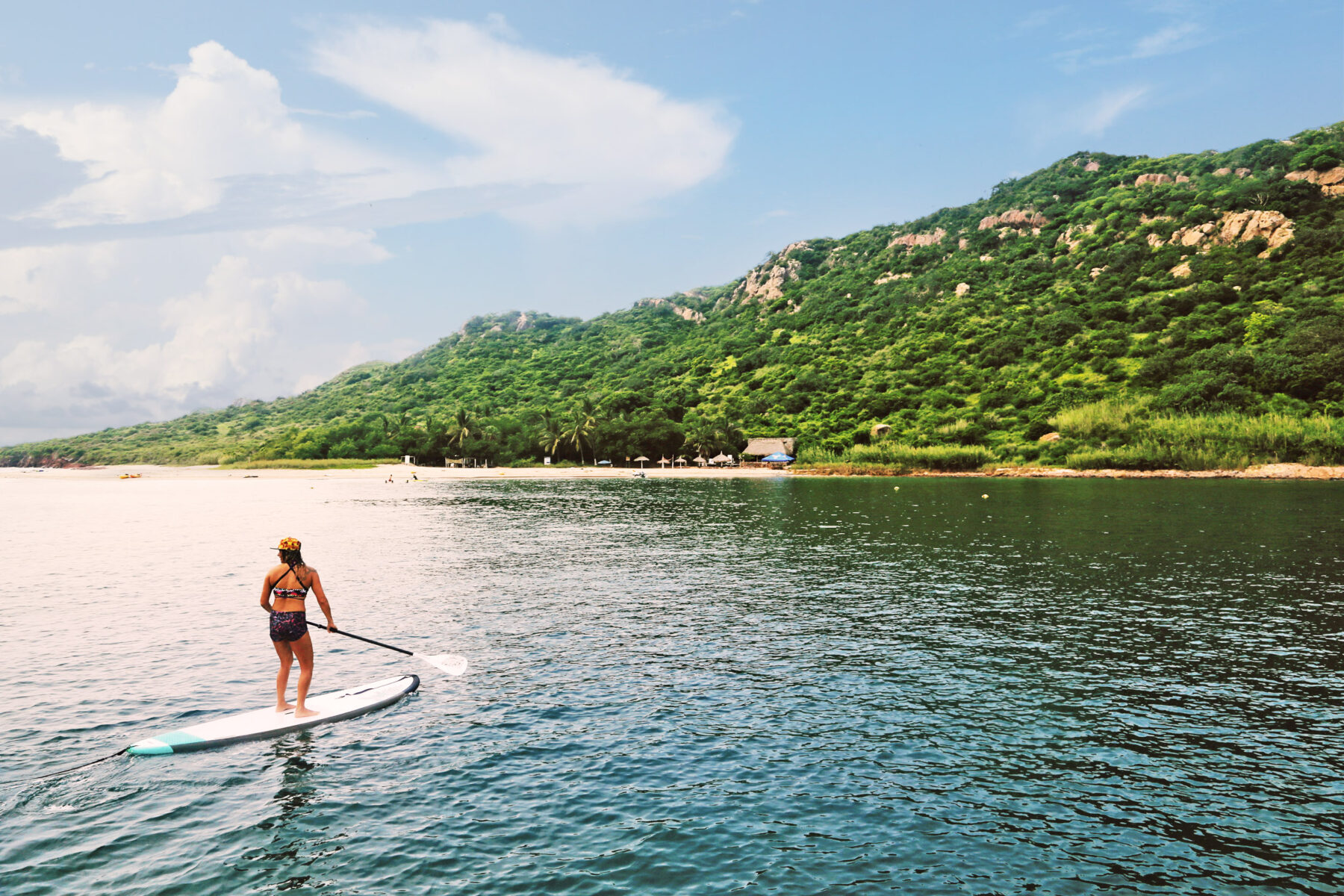There’s a hidden gem for eco-tourism enthusiasts that is often overlooked– Mazatlán, a coastal haven nestled by the Sea of Cortez.
Otherwise known as the Pearl of the Pacific, this city boasts beautiful historical buildings, stunning beaches, and exciting nightlife, but within this pearl there’s a bounty of ecological experiences.
Winter and spring are the main seasons for many eco-tourism activities in Mazatlán.
See why this city is the perfect destination for travelers looking to make a eco-tourism vacation in 2024.

Sea Turtle Release Season: From August to December, Mazatlán becomes a sanctuary for sea turtles. The Verde Camacho Turtle Sanctuary, located about 40 minutes from the city’s main Historical District, has been a conservation center for sea turtles since its opening in 1975. The sanctuary aims to protect the olive ridley sea turtle, who lays its eggs on the beaches of northern Mazatlán. There are various tours that take visitors around the Verde Camacho Turtle Sanctuary to embark on a 4-hour turtle release tour. Visitors will learn from the sanctuary’s biologists about the conservation process, and then take ATVs to the beach to see the turtles. The sanctuary’s incredible conservation efforts have resulted in over 15,000 secured nests and over 1 million baby sea turtles released, firsthand.
- Bird Watching: Nature enthusiasts can explore various locations around the city, such as the Estero Del Yugo Eco-Preserve, Central Park, The 1873 Observatory, and Bird Island. Estero Del Yugo, established in 1997, is home to over 200 species of birds like herons, egrets, spoonbills, ibis, kingfishers, and more. The nature preserve is in the neighborhood of Marina Mazatlán, above the Golden Zone neighborhood. Visitors can go hiking on the nature trails in the nature preserve’s flat dry tropical forest surrounded by freshwater and saltwater lagoons.
The Observatory 1873’s El Nido Mexican Bird Sanctuary further enriches the experience, providing an opportunity to encounter over 70 protected bird species thriving in their natural environment. The Observatory sits at the top of Vigia’s Hill, which is located near the southern tip of the city. This attraction sits 246 feet above sea level in Mazatlán, offering some of the city’s most iconic ocean and land views.

- Flora and Fauna Eco-Tourism: The largest and most accessible island of Mazatlán’s Three Islands is Isla de Venados (Deer Island), located off the Pacific Coast. In 1978 the island was declared a protected area for its flora and fauna. Visitors can hike through the hidden coves and rocky cliffs on the island to explore over 43 species of birds, 5 reptiles, 12 land mammals, 8 insects, and many other creatures. Isla de Venados is full of vegetation and smooth terrain making it a paradise for hiking enthusiasts. Tourists can also enjoy kayaking and diving in the calm waters of its extensive beach. Local tour companies offer packages featuring a catamaran trip to the island, a banana boat ride, and snorkel gear rental, among other amenities. The name Mazatlán means “deer” in Nahuatl, which was one of the languages of the Aztec people. So, it is only fitting that the most popular of the three islands shares the same name as the city.

- Whale Watching: For those seeking a more majestic encounter with marine life, Mazatlán’s location on the coast of the Pacific Ocean makes it a perfect spot to whale watch. The city welcomes humpback whales from December to March. Beyond humpbacks, visitors may also spot Fin whales, Orcas, Grey whales, and Bryde’s whales. Whale watching tours, ranging from 3 to 5 hours, are readily available through tour operators, resorts, and independent yacht companies, offering an unforgettable glimpse into the lives of these magnificent creatures.
- Swim with Wild Dolphins: The warm waters of the Sea of Cortes host various dolphin species, including Pacific Bottlenose Dolphins, Pan-Tropical Spotted Dolphins, and Roughtooth Dolphins. In Mazatlán you can find tours that offer the opportunity to swim with wild dolphins, allowing you to have an up close and personal experience with these sea creatures. Marine scientists usually guide these expeditions, providing environmental commentary and sharing real-time information about dolphins, while collecting scientific data for research and conservation projects.
In Mazatlán, the convergence of ecological diversity and conservation efforts creates the perfect opportunity for travelers seeking an authentic and impactful eco-tourism experience.







